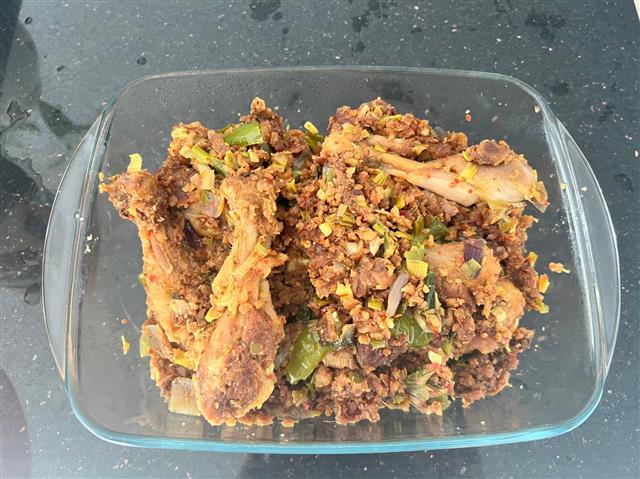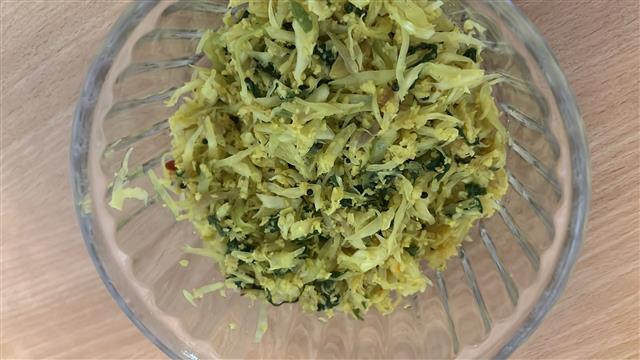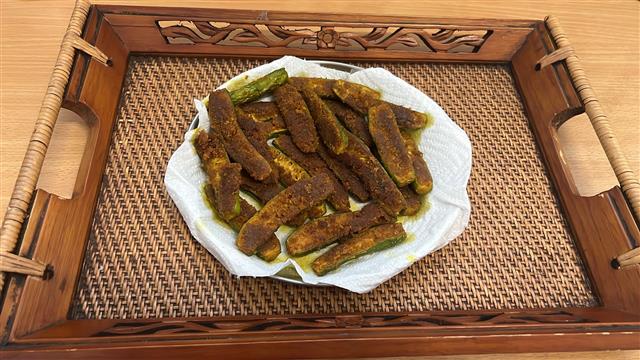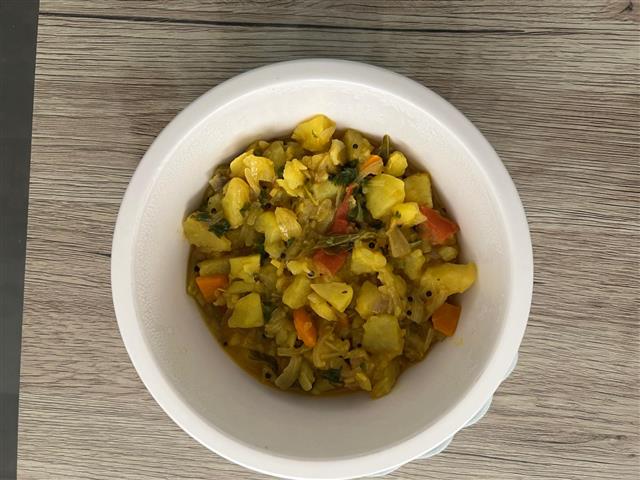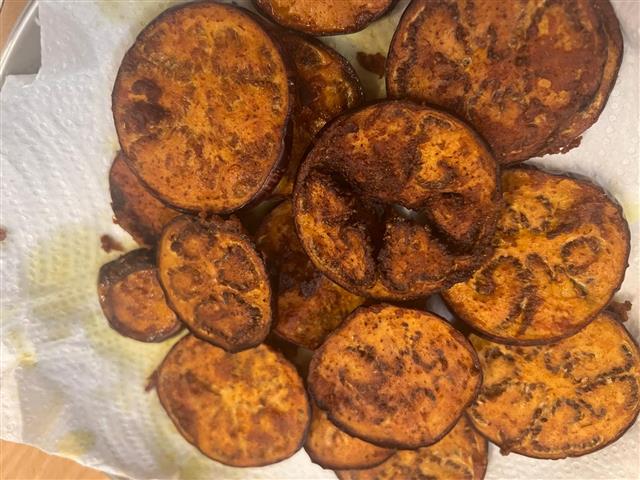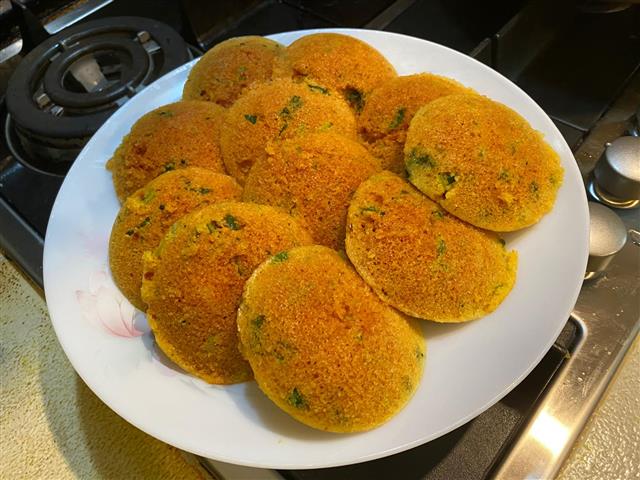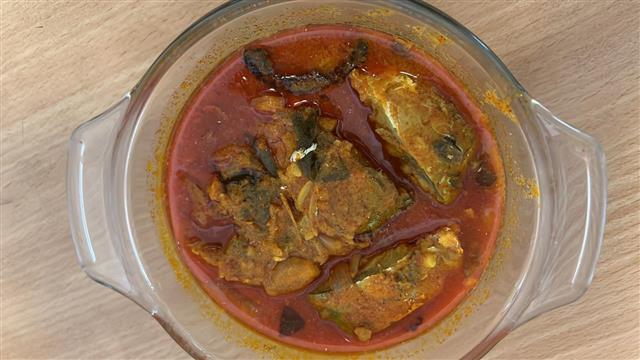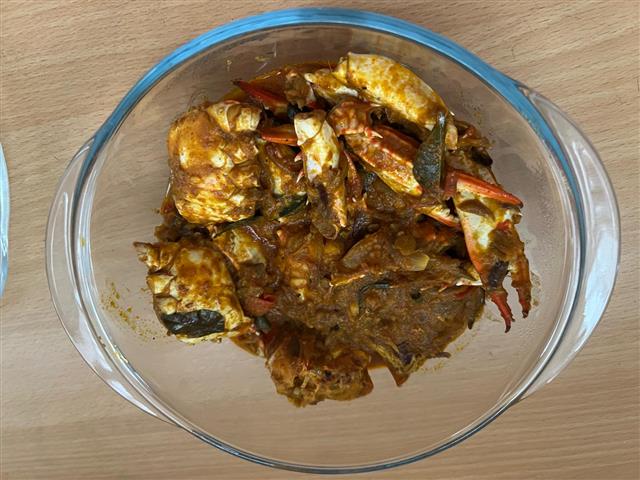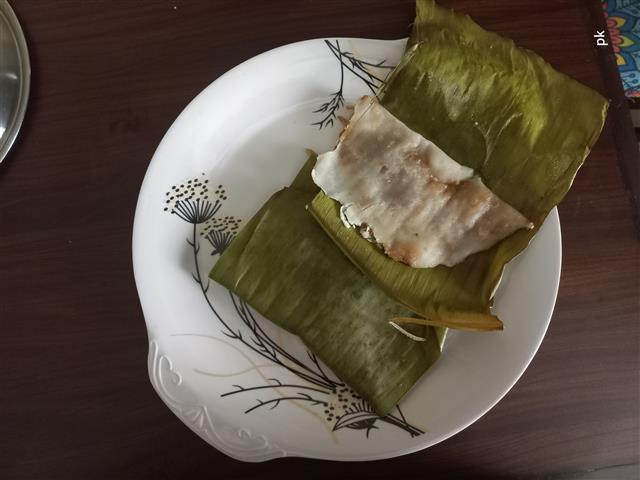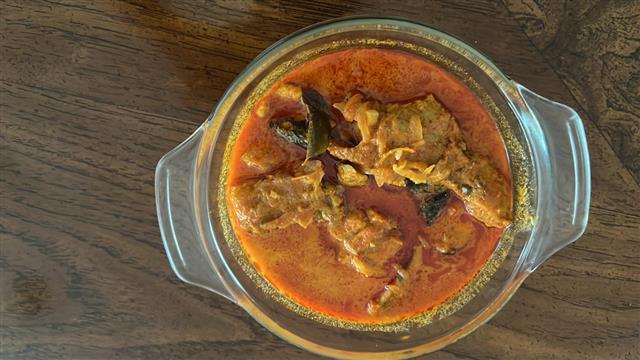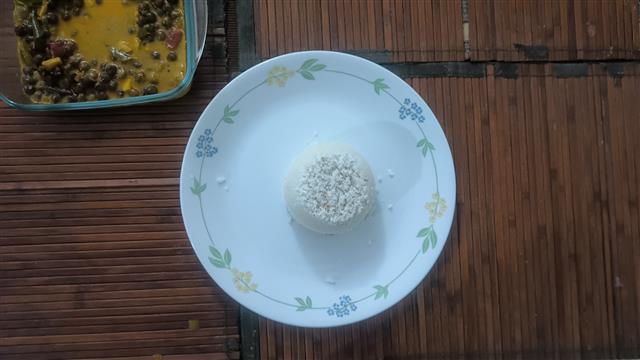
Unakka Konj Varutharacha Kari
(4 reviews)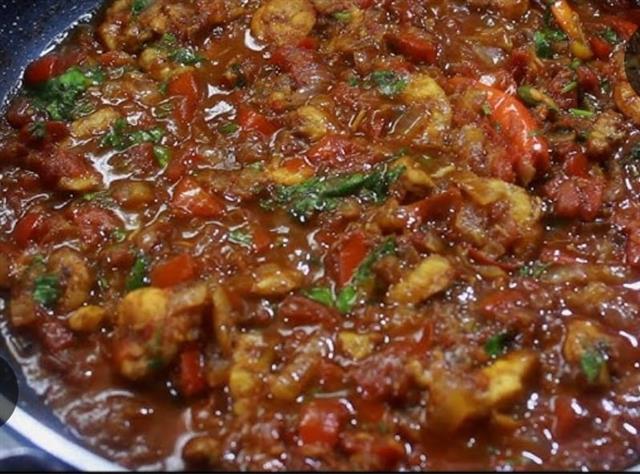
If you like dried salted fish, then this dish is for you. Dried Prawns Curry, or Unakka Konj Varutharacha Curry, is a traditional delicacy from Kerala. The irresistible combination of the smoked saltiness of the dried shrimp or prawns and the rich roasted flavor of the seasoned coconut paste creates a dish that is so delightful in its taste & texture. Have it once and you are sure to get hooked on this coastal favorite.
Ingredients
Directions
- Place the grated coconut, 3 or 4 red chilies, curry leaves, 6 or 7 cloves of garlic, 3 or 4 pieces of ginger, coriander powder, and a little oil in a saucepan.
- Heat it over medium heat or until the coconut color changes to a brownish color. Then add some chilly powder, some salt and mix well.
- Grind them in a grinder and make it into a thick paste.
- Heat the dry prawns and make it crispy.
- Add oil, mustard, curry leaves, onion, and green chili. Cook until the onion turns golden, and add the dry prawns. Stir well.
- Add the coconut paste and tamarind water. Combine well. (Soak the tamarind or kokum in warm water for 10 to 15 minutes.)
- Check the salt and cook for a further 5 to 10 mins until it thickens.
Cooking Tips
If time permits, soak the dried konju or chameen in warm water for 10 to 15 minutes. After that, clean them well and pat them dry with a towel.
While roasting coconut, do not turn the roasted coconut into a dark brown colour; rather, it should be golden brown for this dish. Otherwise, it would have a burnt taste.
Make sure to use coconut oil and curry leaves for this dish, as they naturally elevate the flavor.
Don't overcook the dried shrimps once added to the gravy, as they need minimal time to get cooked. On top
Marination Tips
- If desired, once the dried prawns are soaked, cleaned, and dried, you can marinate them with turmeric and salt for 5 to 10 minutes before adding them to the pan. This will improve the flavour and reduce the pungency.
How to Serve
Unakka Konj or chameen curry is best served with rice and side dishes like thoran or mezhukuparatti. It can also be paired with Kerala flatbreads like chapathi, pathiri, idiyappam, etc.
The Story Behind Unakka Konj Varutharacha Kari
This intensely flavoured unakka konj curry is one of those dishes that has a familial space in our daily meals. I feel this dish showcases coastal Kerala cooking at its best. What's more, this varutharacha curry with unakka konj is a simple yet hearty fare. If you can, make it manchatti or earthen clayware, as it is said to impart a distinctive flavour to it. It is spicy, smoky, and a bowl of naadan coastal goodness in full form.
What is Unakka Konj Varutharacha Kari, or curry?
Unakka konj varutharacha kari, or curry made with dried prawns, roasted coconut, spice powders, and tamarind. It is a highly flavored dish, as it captures the essence and umami of the dried shrimp perfectly. This dish is said to have its origin in Kerala's coastal kitchens, where unakka konju, or dried prawns, were readily available as a basic pantry staple, especially during monsoons when fishing was scarce.
Pro Tips for Perfect Results
If possible, choose dry prawns that are pinkish in color and not too salty. They should not have a fishy odour but rather a good sea smell from it.
Set aside the unakka konju curry for half an hour before serving so that the flavour starts to seep in more and more.
Unakka Konj Varutharacha Kari Variations
In some areas of Kerala, unakka konj varutharacha curry is made with more dried chilies to spice it up.
Unakka konj is also paired with raw mango to make a tangier version of this roasted coconut prawn curry.
Another version of this curry uses raw plantain.
Storing & Reheating Tips
Leftover dried shrimp curry can be stored for 2 to 3 days in the refrigerator in an airtight container. Reheat in a pan with a splash of water. This traditional Kerala prawn curry tastes best the next day, as the dried prawns will absorb more flavors.
Common Mistakes to Avoid
Do not add more water than necessary, as the dried prawns curry should be thick and not watery. If it is runny, the dried shrimps will absorb the extra water and will not be crispy.
Fresh prawns cannot be substituted for dried prawns since they do not have the salty umami of the latter.
Roast the coconut on a low flame until browned. Do not try to hasten the process by cooking on medium flame, as it will then give the deep earthy flavor we are looking for.
Frequently Asked Questions
- Why is my unakka konj curry too salty?
A: Since dried prawns, or unakka konj, or chameen, are naturally salty, you need to be careful before adding salt. Check for saltiness before adding salt, and then add more if needed. If you feel it is too salty, you can try adding a small piece of potato or a minute amount of coconut milk to balance it out slightly.
Equipment Needed
Heavy-bottomed pan Small pan for roasting coconut and spices Mixer grinder Wooden spatula for stirring
